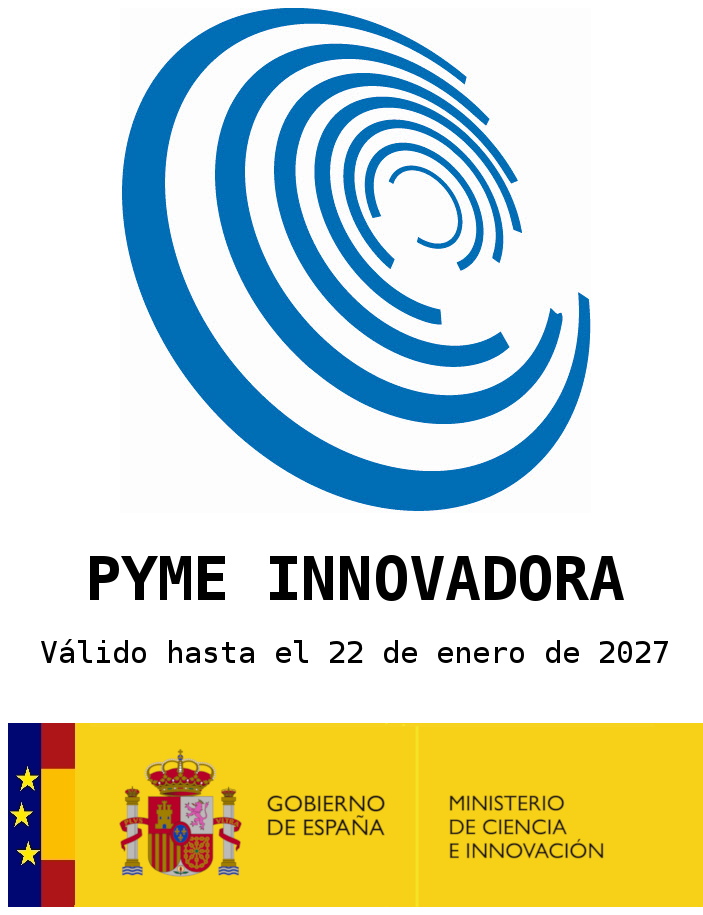Viva In Vitro
International biomedical leaders in inflammasome R&D
We redefine research and development in NLRP3 and inflammatory processes by providing cutting-edge solutions and services, with a special focus on sepsis, multiple sclerosis and other diseases.
Thanks to a patented ex vivo assay that allows us to establish what has happened inside the monocyte and whether or not NLRP3-immune-paralysed, we are pioneering more accurate and easier-to-use techniques to detect ASC-specks, crucial to determine the immune status of patients and assist the medical team in prescribing the most effective treatment as soon as possible, evolving towards personalised medicine.
Our mission:
To save lives
Our core mission is to significantly reduce mortality caused by sepsis, the leading cause of in-hospital deaths worldwide. However, our purpose goes beyond sepsis itself, and encompasses many other inflammatory processes and diseases linked to conditions such as cancer, or diseases affecting the central nervous system.
- At the forefront of knowledge in NLRP3, an established therapeutic target in numerous processes.
- The best ally in the development of inflammasome therapies.
- Moving towards improving the stratification and personalized treatment of patients.
- An impact project: reduction in mortality, ICU stay and consumption of hospital resources.
A reference to develop advanced services, customized solutions, and diagnostic devices.
We lead science-based developments in inflammasomes, founded on two core pillars:
- Our State-of-the-Art facilities in the Murcia Science Park, Spain.
- Collaborative Endeavors with our Allies IMIB, UMu, and Other Esteemed Global Clinical and Research Institutions



With the financial support of the European Research Council (ERC) and the Isaac Peral Foundation, we have successfully completed clinical proof of concept of our patented technique in multiple cohorts of patients and healthy donors, totaling 165 individuals to date.
One of the strongest partners for pharmaceutical and biotechnology companies for the development of therapies based on NLRP3, and among manufacturers of devices for diagnosis, prognosis or stratification of patients suffering from acute and related inflammatory conditions.
Get to know VIVA
SEPS CARE
Our first device designed for the stratification of sepsis patients. The best ally for medical service providers, insurers, and public health systems worldwide.
With support in the development process by the expertise of renowned consultancies like Cambridge Design Partnerships and Veristat.
Why Viva In Vitro?
For Decades, the pharmaceutical and healthcare industries have sought personalized solutions for the tens of millions of people who are affected by acute and chronic inflammatory processes and auto-immune conditions, which have severe and even life-threatening consequences on their health.
“Septic shock alone causes more deaths worldwide each year than cancer.”
To address this challenge, the pharmaceutical industry must advance personalized therapies by differentiating subgroups of NLRP3-immunoparalyzed patients in their clinical trials. This differentiation is crucial to better stablish the effectiveness of various treatments among diverse patient subgroups.
We will provide invaluable support through our personalized services and our cutting-edge stratification KIT, currently in development, to conduct more effective clinical trials and for the development of personalized therapies.
Sepsis alone represents a huge economic annual burden of tens of billions for national health systems, due to prolonged ICU stays and its strain on hospital resources.
Sepsis affects more than 50 million people worldwide, with more than 11 million deaths a year
Sepsis affects more than 11 million people worldwide.
Sepsis alone represents a huge economic annual burden of tens of billions for national health systems, due to prolonged ICU stays and its strain on hospital resources.
Our impact objectives are to help clinicians reduce mortality by at least 25%, reduce ICU bed occupancy by 25% to 40%, as well as reduce hospital waste.
It's already a reality: an effective solution for patient stratification
Diagnostic companies have taken great strides to find markers that directly relate to the prognosis of the septic patients and determine their status.
They have successfully developed devices for rapid and reliable sepsis detection but without the ability to predict patient outcomes or assess their immune system status.
While scoring techniques like SOFA and APACHE offer approximate insights over a few days or weeks, the unmet need for effective solutions to stratify patients at a high-risk of severe complications and mortality remains unsolved, and this is what our first device is all about.
2024: Optimized kit
Whether used in combination with flow cytometry or as a standalone, will simplify, reduce costs and accelerate current research and development work for interested pharmaceutical and biotechnology companies, as well as their clinical tests.
2025: Prototype
Pioneers in the development of a compact device for in vitro prognosis of acute inflammatory diseases, easy to use for central hospital laboratories, and based on our patented techniques that will become the best ally for medical professionals in ICUs, surgical ICUs and resuscitation rooms.
A unique device when it comes to determining the immunoparalyzed or non-immunoparalyzed status of the patient, predicting their evolution and allowing for an early establishment of appropriate treatment for their condition.
Inflammasome-based immunology is one of the big four emerging trends in biopharma investment.
Our Patent
Years of extensive research have culminated in the acquisition of an international patent, (PCT) WO 2020/182964 A1, and the publication of national phases in the European Union, Israel, Canada and the United States.
A growing portfolio
Currently, we are advancing in the evaluation of the patentability of our latest developments with the help of the experts at Clarke & Modet.
Business Solidity
A multidisciplinary team with more than 60 years of experience in the biomedical sector, which has obtained the trust of qualified private investors, with previous experience in biotechnological successes, worth over 1.2 million euros in the first year. Supported by INFO and ENISA, recognized with the Business Award from the Mare Nostrum Campus of International Excellence and the Impact Business certification from the Ship2B Foundation. Company certified by ENISA as an emerging company within the framework of Law 28/2022 of December 21 on the Promotion of the Ecosystem of Emerging Companies.

Strategic Alliances
First Innovative Company Based on Technology (EBT) of the Pascual Parrilla Murcian Biomedical Research Institute (IMIB) and benefiting from its extensive support network, the clinical proofs of concept have been conducted at the renowned Virgen de la Arrixaca University Clinical Hospital, Spain.
The results have been presented to global leaders in our industry at the last two Inflammasome Therapies Summits held in Boston in 2021 and 2022.
Viva is not only a member but also, Dr. Pelegrín currently holds the co-presidency of the PRESTO initiative to accelerate the transfer of results related to P2X receptors (P2XRs, established therapeutic target for numerous diseases) within COST – European Alliance for Collaboration in Science and Technology.
Joaquín Gómez Moya and Toni Vilaplana are, respectively, the current president and general secretary of Abiomur, Association of Bioenterprises of the Region of Murcia.
Colaboradores

















